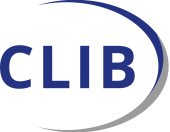Innophore was founded in 2017 as a spin-off of the University of Graz and the Austrian Centre of Industrial Biotechnology (acib) by Dr. Christian Gruber, Dr. Georg Steinkellner, and Prof. Dr. Karl Gruber. Innophore uses a new and unique way to identify enzymes for existing or up-coming industrial biocatalytic processes. The CatalophoreTM platform enables groundbreaking discoveries with an exclusive database of three-dimensional enzyme cavities. The CatalophoreTM platform is a digital search engine provided to industrial partners in pharmaceuticals, chemicals, biotherapeutics, food & beverage, cosmetics, industry, or molecular diagnostics. Based on unique features of enzymes’ active sites, new in-silico methods are used to identify and engineer enzyme candidates using the CatalophoreTM platform, a combination of a comprehensive ready-to-use structural database of biomolecules and unique search algorithms and tailored patterns.
Main role/tasks in ConCO2rde
The primary role of Innophore within ConCO2rde is to act as a mentor and contact industrial research person within the project. Innophore will be able to identify and help define novel research with the ESR and the Academic Supervisor(s).
Key expertise, mainly used research methodologies & equipment
Innophore has a patented, unique, and proprietary computational platform (CatalophoreTM): a combination of a comprehensive database consisting of prepared structural data of proteins, tailored search algorithms, and patterns. By harnessing the CatalophoreTM technology, novel enzyme candidates fulfilling the technical requirements for real-world customer products can be discovered. Innophore uses this bioinformatics method combined with artificial intelligence to mine structural databases using three-dimensional search templates termed “CatalophoresTM” (i.e., carrier of the catalytic function). Enzymes identified with this technique do not necessarily share a common structure or sequence base with their currently employed counterparts. Therefore, they potentially feature altered protein properties such as pH-, thermo- and solvent stability, substrate spectrum, selectivity, and specificity. The in-silico studies facilitate defining novel and non-natural enzymatic activities able to survive in the specific operating conditions provided by the industrial end-users.
PD Dr. Bettina Nestl
Bettina Nestl is an Industry Supervisors within the project. She will share her experience and knowledge at training events and conferences. Furthermore, Bettina Nestl has been appointed the Ombudsperson.
Bettina Nestl obtained her diploma in chemistry in 2004 at the University of Graz. She earned her Ph.D. in 2007 under the guidance of Prof. Kurt Faber at the University of Graz. Following her doctoral studies, she moved to the University of Manchester for doing a postdoc with Prof. Nicholas J. Turner. After her postdoc, she started as a research group leader at the University of Stuttgart working with Prof. Bernhard Hauer. Her research interest focused on developing and engineering enzymatic catalysts for challenging chemical reactions. In 2020 she obtained her habilitation from the University of Stuttgart and recently joined the start-up Innophore in Graz as a senior scientist and key account manager. The team at Innophore has supervised and mentored various students and has experience in mentoring students in technical and scientific research.
Silantes produces and distributes uniformly and partially stable isotope labelled biomolecules for nuclear magnetic resonance (NMR) spectroscopy and mass spectrometry (proteomics and metabolomics). These are >98 % isotopically enriched with the isotopes 2H, 13C and 15N. Our vision is to further broaden the applications for stable isotope labelled biomolecules.
We may not manufacture tires, mattresses, medications, or animal feeds, but Evonik is part of all of those products –and many more. While we often contribute only small amounts of material, those contributions are precisely what make the difference. That’s because Evonik products make tires fuel-efficient, mattresses more elastic, medications more effective, and animal feeds healthier. That’s what specialty chemicals are all about. And when it comes to specialty chemicals, we’re among the best in the world.
Main role/tasks in ConCO2rde
Hosting workshop on bio-based products and CO2 utilization
CLIB will bring together academia and industry and support the technology transfer within the project. CLIB is an international open innovation cluster for bioeconomy and circular economy with a focus on industrial biotechnology. The approximately 100 cluster members are large (multinational) companies, SMEs, universities, academic institutes as well as other stakeholders active in the bioeconomy from Germany, Europe and around the world.
Founded in 2007, CLIB has more than 12 years of experience in connecting stakeholders along and across value chains; in helping to set up project consortia, in developing tech transfer strategies, in providing policy advice and in promoting industrial biotechnology as a key driver for a sustainable bio- and circular economy.
Key expertise, mainly used research methodologies & equipment
CLIB’s key expertise is in networking relevant stakeholders, scouting for new topics and markets, building of project consortia, and thus catalysing innovations.
Dr. Katrin Kriebs
Dr. Katrin Kriebs is a trained biologist and holds a doctorate in molecular plant biology. She has strong experience in education, training of soft skills and project management. At CLIB she is involved in several projects on a regional, national, and international level. Her focus is on education, entrepreneurship and technology transfer.








